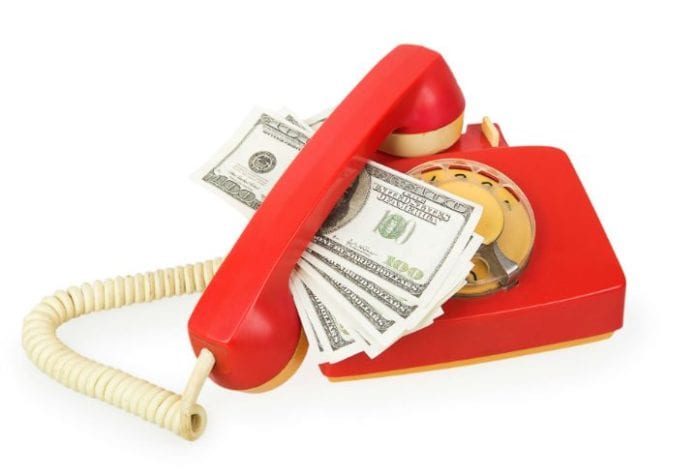Citing program fraud, the FCC fined Total Call $30M and banned company from participating in the government-subsidized Lifeline program.
Total Call Mobile has again been slapped with a fine by the Federal Communications Commission tied to Lifeline fraud allegations, with the added punishment this time of being banned from participating in the government-subsidized program.
The FCC said Total Call is to cough up $30 million to resolve a fraud investigation into allegations the company enrolled “tens of thousands of duplicate and ineligible consumers into the Lifeline program.” The investigation, which was conducted by the FCC’s Enforcement Bureau and the United States Attorney’s Office for the Southern District of New York, claims Total Call sales agents used fake and repeated eligibility cards and false subscriber information to enroll customers into the program, and that managers failed to act on the allegations.
Total Call also admits to failing to implement policies to ensure eligibility of Lifeline subscribers, monitor compliance and failed to train sales agents, and in turn received compensation from the government’s Universal Service Fund for tens of thousands of consumers that did not qualify for the Lifeline program.
“The investigation found that Total Call engaged in systematic and egregious misconduct that included enrolling duplicate and ineligible consumers in the Lifeline program through the misuse of eligibility documents such as temporary Supplemental Nutrition Assistance Program cards, including enrolling ‘phantom’ consumers who were created by using the identity information of an individual without the individual’s consent,” the FCC noted.
The fine includes repayment to the USF and a penalty paid to the U.S. Treasury as well as permanently losing its ability to participate in the government-subsidized program anywhere in the country.
Total Call on its website states it has partnered with EnTouch Wireless to now handle Lifeline customers, though customers transferring service must reapply to keep their service.
“We have no toleration for fraud,” said FCC Enforcement Bureau Chief Travis LeBlanc, in a statement. “This unprecedented $30 million settlement along with a permanent ban from the Lifeline program affirms our commitment to pursue the strongest sanctions for those who defraud or abuse the Universal Service program. We thank our partners at the Department of Justice for working with us to make sure that companies that commit fraud are held accountable to the fullest extent of the law.”
Total Call earlier this year was hit with a record $51 million fine tied to similar accusations, which included claims the company had received $9.7 million in fraudulent payments dating back to 2014.
The action followed up on the FCC adopting Lifeline program reforms, which included the establishment of an independent National Eligibility Verifier to determine the eligibility of consumers enrolling in Lifeline in order to prevent abuses. The proposal also included plans to add broadband connectivity to the program that would make available $9.25 per month to support standalone broadband services and bundled voice and data service packages to low-income consumers. Those connectivity options are expected to include LTE service in order to meet the government’s definition of broadband, with “5G” technology expected to further deployment and service options.
The Lifeline program is designed to provide discounted phone service to low-income consumers. Under the current Lifeline program rules, eligible telecommunications carriers receive $9.25 per month for each qualifying low-income consumer receiving phone service, including up to an additional $25 per month for eligible consumers residing on Tribal lands, and are required to pass a discount equal to the reimbursement along to the consumer.
The FCC has attempted to corral the waste and fraud issues surrounding the Lifeline program, including fining operators for gaming the system.
A number of telecom operators have altered their approach to the Lifeline program, including AT&T last month announcing plans to opt out of the system due to the recent changes in the program. Sprint earlier this year announced a deal to merge its Lifeline-focused Assurance Wireless service with I-Wireless’ Access Wireless service, which will operate under the I-Wireless brand and focus on the Lifeline program.
Bored? Why not follow me on Twitter.

